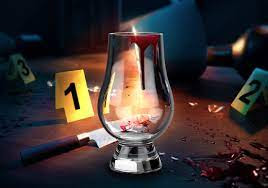AO:- Your latest book sees the return of Cornelia a hit woman whom we first encountered in a short story that was published in PARIS NOIR What made you decide to bring Cornelia back?
MJ:- Somehow Cornelia imposed herself as a haunting presence in so much of the crime fiction I have been writing since that particular anthology. On one hand I liked the character and, on the other, I paradoxically identified with her. In the words of Madame Bovary and Flaubert, ‘Cornelia, c’est moi’, even though I am naturally neither a woman or a hired killer, but I did give her traits that I have… Maniac book collecting, a complicated attitude to sex and relationships, a certain detachment that conceals a turmoil inside, tastes in music.... So she kept on reappearing in some of my other novels as a minor character several times and I pursued her ‘adventures’ in over a handful of short stories. Readers also appeared to enjoy her, so I felt it was time to ‘give’ her a book of her own.
AO:- It is pretty much clear that she is named after Cornell Woolrich whom (I know if I am not mistaken) is your favourite writer. How big an influence was Cornell Woolrich on Cornelia as a character aside from her name?
MJ:- Yes, that is indeed the case. Unlike the majority of Woolrich’s characters she is very much proactive, but she navigates in the same waters, streets and nights in a zone where doom is ever on the horizon and fate plays a large part, a demi-monde of noir and fatalism. I had to reverse engineer some of the stories in which she had appeared to avoid repetitions or contradictions and also cannibalised a few in the process, which was an interesting process.
AO:- One of the great things about Cornelia is the fact that she is a collector of books. All book collectors have at least one prized novel in their collection. Does Cornelia have one and if so which book is it and also do you
MJ:- Many of the titles she collects with the proceeds of her hits are books I either have or covet. I’ve never actually asked her if she has any favourites, but I’m sure they would align with mine. This would include first edition F. Scott Fitzgerald titles, a notorious first state advance proof of John Le Carré’s THE NIGHT MANAGER and many more. I don’t think she’s ever collected Woolrich titles, though, as that might have been incestuous, but I, of course, do. Where we do part ways is she doesn’t appear to collect crime and mystery titles like me, but I do make a reference to her owning some books I actually wrote under a pseudonym; all part of my pulling the strings behind the curtains and setting up my customary hall of mirrors. In addition, there is an anonymous writer she comes across in the interests of the plot who might or might not bear similarities to me!
AO:- Is this really Cornelia's last hurrah?
MJ:- It will be. I’ve exhausted her; I’ve exhausted myself. But I hope I’ve done her proud and over the course of JUST A GIRL WITH A GUN I’ve filled in some of the missing gaps, given her an extra human dimension although her motivations and inner life still remain shrouded in mystery and questions, which I feel is true to real life where I find it impossible to ever understand certain people/characters fully. She’s complicated, certainly not evil;, she’s both strong and weak, a mass of paradoxes.
AO:- Where did the title JUST A GIRL WITH A GUN come from?
MJ:- It came to me out of the blue. It felt right; like the title of a song. And, ironically, gave me a chance to use the word ‘girl’ in a title, years after the time when it was so much in vogue. I enjoy being out of sync with fashion, although in this instance I also happened to be years ahead of the trend in introducing a female hitwoman, decades before Villanelle, of KILLING EVE! Also, JUST A WOMAN WITH A GUN doesn’t sound right, no?
AO:- The book cover for JUST A GIRL WITH A GUN reminds me of Edward Hopper paintings specifically the 1927 painting Automat. How important is Edward Hopper to you?
MJ:- The world of Woolrich, which Cornelia and her hapless companions inhabits is one I’ve always identified with and is very much part and parcel of Hopper’s art and its liminality; a territory of fixed characters in a city landscape at night, where colours and stances determine their fate, like flies caught in a spider’s web. I had suggested a Hopper sort of mood to the publishers when they canvased me for cover ideas, and they tried to use an actual Hopper painting, but that particular one was still in copyright and therefore financially out of reach – unlike earlier Hopper work before he moved into the waters of noir – so they came up with the clever suggestion to commission Martin Baines to do a variation on a Hopper figure in a book-ish context, which I think works very well.
AO:- Is this the end of your writing novels or will you still continue to write even if it is solely short stories?
MJ:- Without giving away a double spoiler, it might well be. I have always found writing novels agonising, even though I’ve now given birth to 21 of the bastards. I fear age is catching up with me and neither energy nor the will is there any longer. I’m unsure if I can face writing another, with all the inner pain, sleepless nights, doubts and all that entails. Despite my deep immersion into the world of crime and mystery, my novels in the genre have always been marginal. I have no interest in whodunnits, puzzles, police procedure (indeed I have NEVER had a cop as a character, even minor…). I suppose you could call them psychological thrillers but even then, my novels have been on the outer margins of that category; they’ve never fitted in. I prefer to label them twisted love stories. And I’m not likely to change anymore! My previous two novels, respectively THE LOUISIANA REPUBLIC and THE PIPER’S DANCE were actually a dystopia (albeit with a futuristic PI) and a magical realist fantasy about the Pied Piper of Hamelin and castrating mermaids, and harked back to my early years as a writer in science fiction and fantasy, so I felt as I was about to stand down as Chair of the Crime Writers’ Association that surely what might turn out to be my final novel should be a thriller. Who knows what the future might bring? There has always been a strong element of metafiction or autofiction in my books and I’m unsure whether I could sustain another novel. I will certainly keep on writing and reviewing; in fact since completing JUST A GIRL I have penned a half dozen short stories, albeit mostly in the supernatural genre. I love writing short stories and, frankly, I think they are my best work, and it would be nice to accumulate enough new ones to fill a whole collection; all my previously uncollected ones appeared in 2022 in DEATH HAS A THOUSAND FACES, so another such volume would be great if I could come up with sufficient new material. Prior to embarking on JUST A GIRL I consulted with my agent as to which novel I should then write next as I had two other ideas, one for a mainstream historical novel about British expatriates in Paris in the 1950s, and another for a major, and also quite final, ‘big’ erotica opus. She suggested there was possibly more demand for a thriller, but should I find the courage, the time and the will to write another novel, I would opt for the latter project although both she and my own inner voice are sadly aware there is no likely demand for such a book right now, which is sad. Having said that, despite my past and reputation as a literary ‘pornographer’, I don’t think I could ever go out in public again should I ever write ‘that’ erotic book, but what a way to go! Who knows?
AO:- If any of the answers to my previous question is yes, then what are you working on at the moment that we can look forward to reading.
MJ:- A bunch of short stories are all appearing over the next few months: ‘On Our Way to the Shore’ in TERROR TALES OF THE MEDITERRANEAN, edited by Paul Finch; ‘The Book Collector’ in SOMETHING PECULIAR, GREAT BRITISH HORROR 8, edited by Steve Shaw and ‘Springtime in New Orleans’ in a limited edition collection of new stories inspired by the wonderful French writer Boris Vian from Raphus Press.
AO:- What next for Maxim Jakubowski?
MJ:- You tell me!
Just a Girl With a Gun by Maxim Jakuboswski (Telos Publishing) 1 November 2023
In the neon-lit world of seduction and secrets, Cornelia, a mesmerizing stripper, finds herself pulled into a sinister web spun by the enigmatic organization known only as ‘The Bureau’. Recruited for her hidden talents, she becomes an unlikely assassin, caught between the dance floor and a life of deadly precision. But Cornelia harbours a secret passion that sets her apart from the other killers – she has a penchant for rare books. With each mission she completes, Cornelia indulges her obsession, using her ill-gotten gains to amass a collection that becomes both her refuge and her escape. Amidst the chaos and danger, Cornelia’s path intertwines with Hopley, a fellow assassin haunted by his past. Unwittingly drawn together by their shared world of shadows, they navigate a treacherous landscape where trust is scarce, and survival is paramount. As their forbidden romance blooms amidst the darkness, Cornelia and Hopley find solace in each other’s arms, their connection a fragile thread of love against a backdrop of deceit and danger. Yet, as they delve deeper into the heart of The Bureau, they discover a haunting truth that threatens to tear them apart. In this exotic and gripping thriller, where death is a dance partner and love flickers in the shadows, Cornelia must confront her own loneliness and unravel the mysteries that surround her. Will she find redemption and a chance at a life beyond the deadly stage? Or will the sinister forces at play consume her, leaving only echoes of a lost love in their wake?
Maxim Jakubowski was for over 20 years the owner of the much missed Murder One bookshop which he owned and ran. He was also ran Crime Scene, London's Annual crime film and literary festival. He has worked for many years as an editor in publishing and he currently writes, edits and translates full-time in London where he lives. A former columnist for Time Out and The Guardian he is now a monthly book columnist for Crime Time. Maxim Jakubwoski is also a former Chair of the Crime Writers' Association of Great Britain. More information about Maxim and his work can be found on his website.
























